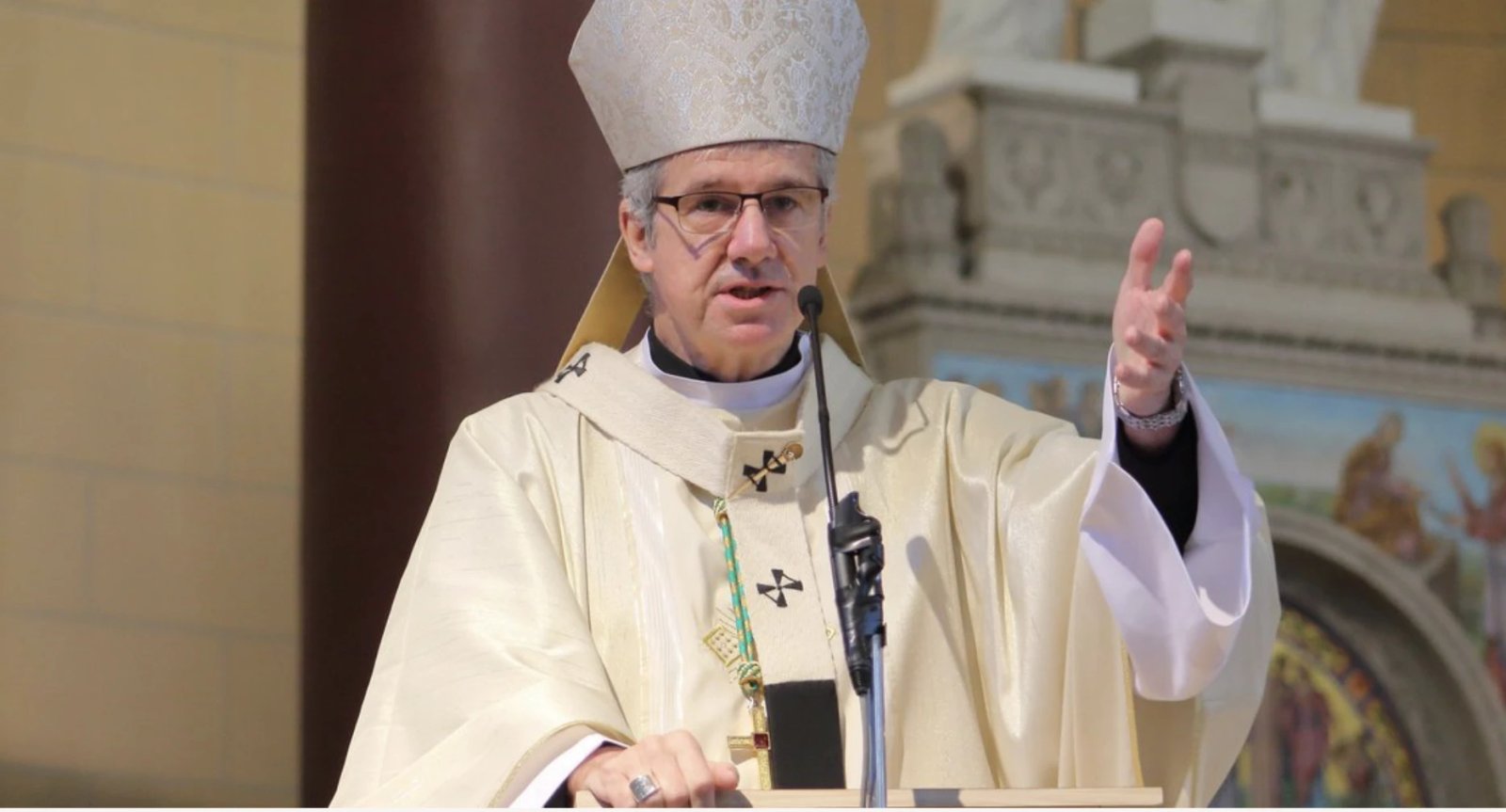Quebec City, Canada, Sep 8, 2025 /
17:16 pm
The Quebec government’s call for a ban on all public prayer raises “serious concerns” about a democratic society’s fundamental freedoms, Montreal Archbishop Christian Lépine said in a public letter.
Such a ban would discourage gestures fostering hope and solidarity in a world already “shaken” by so many crises — economic, social, and environmental, the archbishop said.
“At its core, to forbid public prayer would be somewhat like forbidding thought itself,” he said in a letter posted to the archdiocese’s website Sept. 2 and published in the Montreal newspaper La Presse.
Lépine said the proposal by Quebec Premier François Legault to end prayer in public places goes squarely against the Canadian Charter of Rights and Freedoms, Quebec’s own Charter of Human Rights and Freedoms, and the Universal Declaration of Human Rights.
“Can we afford to discourage gestures that foster hope and solidarity?” he said.
The archbishop called the proposal unworkable and discriminatory, adding it would “jeopardize traditions deeply rooted in Quebec,” such as the Way of the Cross, Palm Sunday processions, and the feast of Corpus Christi, among others.
“These events, marked by order and dignity, are spaces of encounter,” he said. “To forbid prayer in public would be to threaten their very existence.”
He added that Pope Francis’ penitential pilgrimage to Canada in 2022, with its stop in Quebec City, might have been banned under such a law.
Quebec’s Catholic bishops are also speaking out, saying the ban would violate people’s constitutional rights.
Bishop Martin Laliberté, president of the Assembly of Quebec Catholic Bishops, said he was “stunned” by Legault’s suggested ban on prayer in parks and on city streets, warning that it would affect a wide range of activities practiced by people of many faiths.
In a recent open letter, the Quebec bishops said the ban would target minority religious groups perceived by some as threatening Quebec’s identity, would be unenforceable, and would contradict both Canadian and Quebec Charter rights.
Legault’s Coalition Avenir Québec party first called for such a ban late last year and immediately drew condemnation from many quarters, including Quebec’s bishops. In a letter at the time, Laliberté wrote to the government: “Prayer is not dangerous.”
The Quebec government has been vocal about introducing a bill to ban public prayer following a spate of mass Islamic prayer gatherings in 2024 in conjunction with pro-Palestinian protests in the province, including a weekly one in the square outside of Notre-Dame Basilica in Old Montreal. Images and videos of Muslims praying in Montreal outside the basilica have made headlines this summer.
On Aug. 28, Quebec secularism minister Jean-François Roberge announced the government will introduce legislation in the fall to ban street prayer, although it has not said whether it will invoke the notwithstanding clause of the Charter to shield the legislation from constitutional challenges.
The Canadian Constitution Foundation also came out strongly against the proposal.
“This legislation is an assault on the constitutionally protected right to freedom of religion,” said litigation director Christine Van Geyn. “We view this as overreach that will impact religious communities across Quebec and deserves careful scrutiny. Secularism does not require hostility to people of faith, and that is what this proposed law represents.”
(Story continues below)
Subscribe to our daily newsletter
Van Geyn said it is understandable that the government wants to prevent protests and prayers that block streets, “but banning all public prayer in Quebec violates the very freedoms that make Canada better than a theocracy. The government should enforce existing laws and ticket those who block traffic and violate noise bylaws; don’t attack all people of faith.”
The Canadian Civil Liberties Association (CCLA) likewise condemned the proposal as “a clear infringement” on freedom of religion, expression, assembly, and association.
“Suppressing peaceful religious expression, individually or communally, under the guise of secularism not only marginalizes faith-based communities but also undermines principles of inclusion, dignity, and equality,” said CCLA Director Harini Sivalingam.
CCLA Executive Director Howard Sapers warned of “the increasing trend by some governments to misuse the notwithstanding clause to violate fundamental rights and freedoms.”
The Canadian Muslim Forum added its voice, saying public prayers are a manifestation of freedom of expression, and a blanket ban would stigmatize communities, fuel exclusion, and undermine Quebec’s social cohesion.
“The government should be focused on solving real problems, not policing the fundamental rights of its citizens,” the group said in a statement.
With provincial elections due in 2026, identity and secularism issues are once again dominating Quebec’s political debate. Legault’s government has been suffering in opinion polls and recently lost its third consecutive byelection to the separatist Parti Québécois.
This story was first published by The B.C. Catholic, is reprinted here with permission, and has been adapted by CNA.





